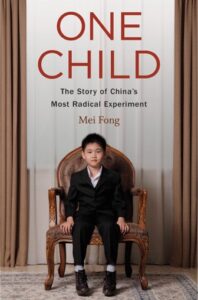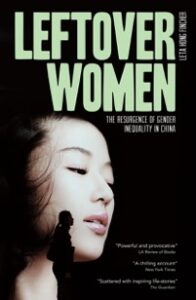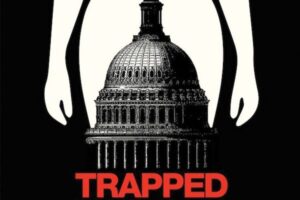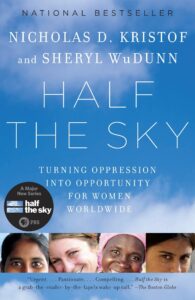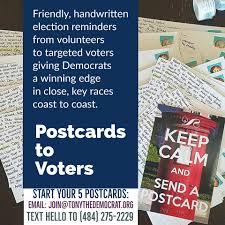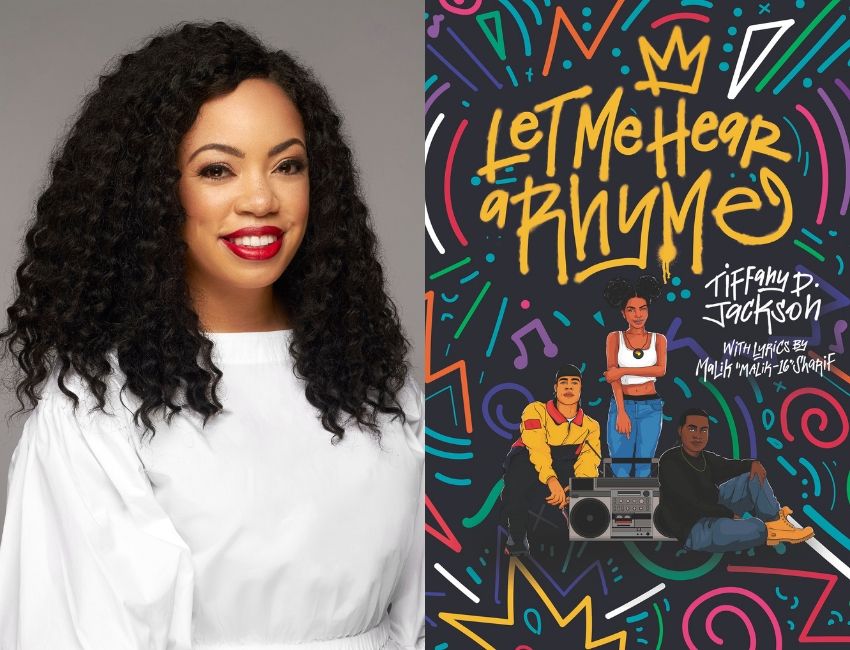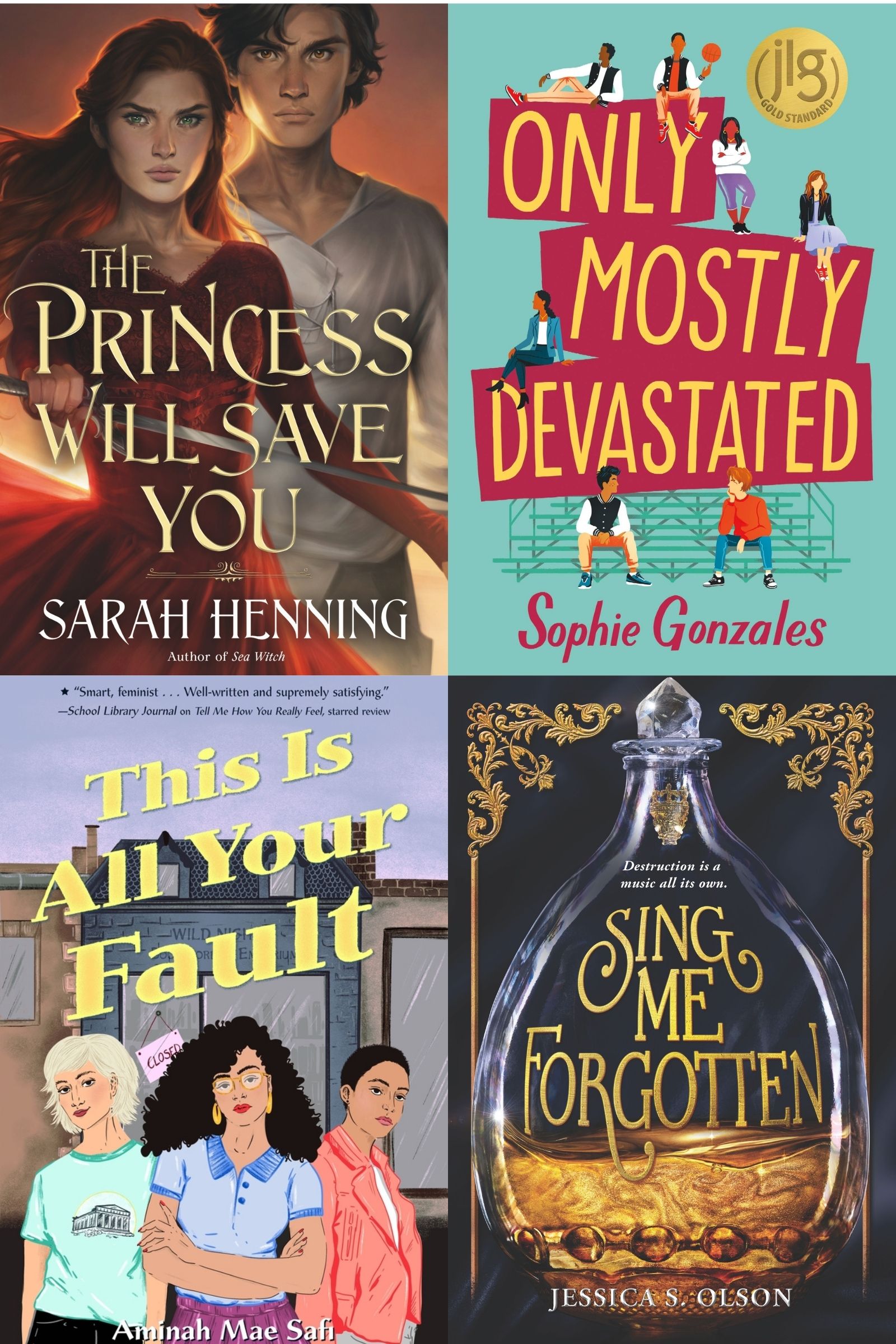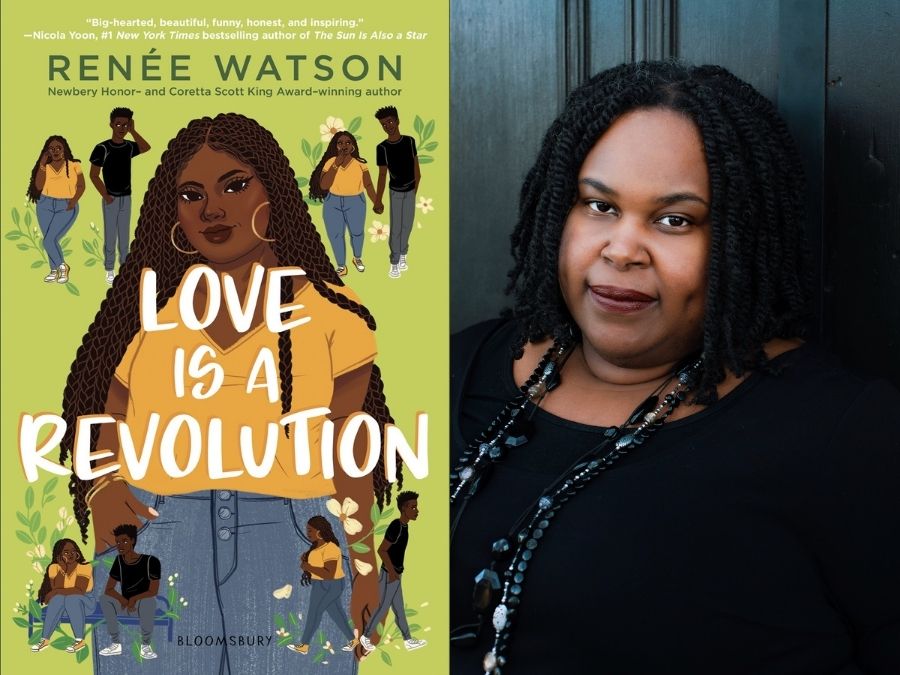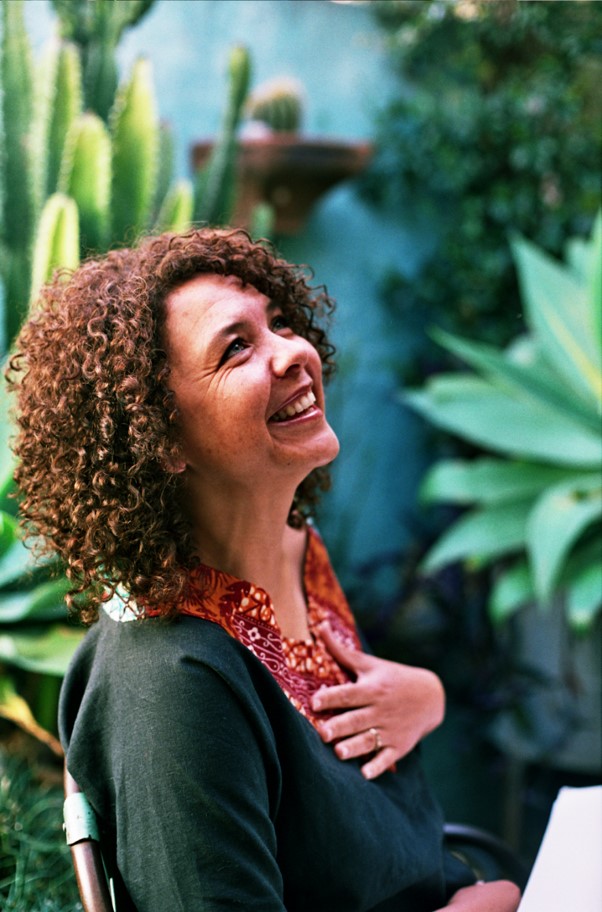#ReadForChange: Courage in the face of a “Dystopian Reality” in Jennie Liu’s Girls on the Line
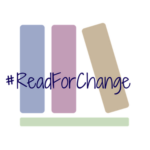 Teen Librarian Toolbox is excited to be partnering with Marie Marquardt for her #ReadForChange project. Hop on over to this post to learn more about the initiative. Today, she and Jennie Liu join us for a conversation about China’s One-Child Policy, political action, abortion, and Liu’s 2018 book, Girls on the Line.
Teen Librarian Toolbox is excited to be partnering with Marie Marquardt for her #ReadForChange project. Hop on over to this post to learn more about the initiative. Today, she and Jennie Liu join us for a conversation about China’s One-Child Policy, political action, abortion, and Liu’s 2018 book, Girls on the Line.
“The only effect I ardently long to produce by my writings, is that those who read them should be better able to imagine and to feel the pains and the joys of those who differ from them in everything but the broad fact of being struggling, erring human creatures.”
– George Eliot (the pen name of Mary Anne Evans)
Girls on the Line: A Beautifully-Crafted “Empathy Delivery System”
 Last spring, I had the pleasure of being on a panel with the wonderful Gayle Forman. We were discussing the significance of fiction in this particular historical moment, and Gayle made a comment that I’ll never forget. She described novels as compact and very effective “empathy delivery systems”. This, to my mind, is a perfect description of the power of great stories – they bring us into deep encounter with experiences that, without the novel, we almost certainly would never have. Great novels allow us to spend time, for a while, imagining what it might feel like to be a person whose experience may be enormously distant from our own in many ways. But these great stories also remind us how much we share much in common with the people whose lives and experiences may be profoundly different – the joy of lasting friendships, the anxiety of taking on a new job and moving to a new place, the heartbreak of falling in love with the wrong person.
Last spring, I had the pleasure of being on a panel with the wonderful Gayle Forman. We were discussing the significance of fiction in this particular historical moment, and Gayle made a comment that I’ll never forget. She described novels as compact and very effective “empathy delivery systems”. This, to my mind, is a perfect description of the power of great stories – they bring us into deep encounter with experiences that, without the novel, we almost certainly would never have. Great novels allow us to spend time, for a while, imagining what it might feel like to be a person whose experience may be enormously distant from our own in many ways. But these great stories also remind us how much we share much in common with the people whose lives and experiences may be profoundly different – the joy of lasting friendships, the anxiety of taking on a new job and moving to a new place, the heartbreak of falling in love with the wrong person.
ADVERTISEMENT
ADVERTISEMENT
This is precisely what I love about Jennie Liu’s debut novel, Girls on the Line. It’s the story of Luli and Yun, two orphans living in Gujiao, China in 2009. When they age out of the orphanage, both move into factory jobs, working alongside other young women “on the line”. Yun launches into her new life with gusto – loving the independence of earning her own money, living in a dormitory with other factory workers, buying the things she wants, and dating her exciting new boyfriend, Yong. Luli, more tentative and skeptical of this new life, grows anxious and overwhelmed when her friend Yun announces that she’s pregnant with Yong’s child, and she intends to keep it. When Yun disappears, it’s up to Luli to find her, and to find the courage that she never knew she had.
Set against the backdrop of China’s One Child Policy (which ended in 2015), and inside the expanding world of a Chinese factory labor system fueled by young women, Girls on the Line does more than bring readers on an exhilarating journey filled with twists-and-turns. It also offers an eye-opening introduction to those of us with little understanding of Chinese government policy, or of the circumstances for production of the Chinese-made products that North Americans buy every day. Most importantly, though, Luli and Yun’s story — as a beautifully-crafted “empathy delivery system” — reminds readers of all the things teenagers share in common, no matter where we live, what kind of work we do, or who we love.
“Engaged in the World”: An Interview with Jennie Liu
 MARIE: Girls on the Line is such a unique book – it tells a story unlike anything I’ve read in YA. What made you decide that this novel needed to be written, and that you should be the one to write it?
MARIE: Girls on the Line is such a unique book – it tells a story unlike anything I’ve read in YA. What made you decide that this novel needed to be written, and that you should be the one to write it?
JENNIE: I was fishing around for a novel idea and I remembered two girls who were adopted from China who lived in my neighborhood years ago. Their parents worked very hard to connect them with their birth culture. When I was growing up, I didn’t see any books or novels that featured Chinese girls. I thought, What are these girls going to read? Now I see that there are more and more novels about Asian-American experience and historical Chinese novels, but I wanted to write something about modern China, set completely in China. I kept wondering what happens to the girls who don’t get adopted, and that was the germ of my novel.
As I researched who doesn’t get adopted and began to understand the ins and outs of the One-Child Policy, and the unexpected implications and consequences, I knew this was my novel. I was struck by how abortion is not controversial in China, even pushed or forced at times by the government, whereas here in the States, there are moves to block it. People have different individual views, and the idea of government taking away women’s reproductive choices just outrages me.
My editor, Amy Fitzgerald at Carolrhoda Lab, called GIRLS ON THE LINE a dystopian reality in our first chat. I knew then that she truly understood the novel and why it could be relevant to readers outside China. Tradition and policy can have chilling social consequences, and often keep disadvantaged people trapped in their place. Even here in the States, plays are being made toward a dystopian reality—legislation aimed at blocking women’s right to make personal choices, discriminatory gerrymandering, pulling back on environmental protections in favor of business interests, etc, etc.
MARIE: In the face of these plays toward “dystopian reality,” what actions are you taking to build a more just society?
JENNIE: A large part of what makes me feel really engaged in the world is having chosen a career (my other one) in a helping profession that allows me to meet and interact with people from all walks of life. Outside of that, I’ve found volunteering in my immediate community best fits my need to address change. My friends and our children have a regular volunteer group and I like to focus on human-related issues such as homelessness and food insecurity. When one is distressed about the state of affairs, the mind is soothed by bagging food packs for children for three hours.
On the larger political level, besides donating money to organizations, this year I’ve been working on Postcard to Voters where I been writing friendly postcards to voters in close, key districts, by myself and in groups. It’s been a quick and immediate way to deal with frustration and anxiety about the election.
MARIE: For readers who also want to take action, what’s your advice?
ADVERTISEMENT
ADVERTISEMENT
JENNIE: For students, I recommend doing volunteer work in your community where you can learn about local problems and issues. You’ll meet mentors who can teach you how to organize and help at the grassroots level. And of course, being counted is always important—as a voter, a body in a protest, a caller/writer to officials, and especially, encouraging friends who may be less inclined to vote or participate.
“Implications and Consequences”: Jennie’s excellent recommendations for learning more.
One Child: The story of China’s Most Radical Experiment by Mei Fong (You can hear her discuss the reason she wrote the book here.)
Leftover Women: The resurgence of Gender Inequality in China by Leta Hong Fincher
The Common Secret: My Journey as an Abortion Doctor by Susan Wicklund
Trapped: A film by Dawn Porter an Independent Lens/PBS documentary about U.S. reproductive health clinics fighting to remain open.
Half the Sky: Turning Oppression into Opportunity for Women Worldwide, by Nicholas D. Kristof and Sheryl WuDunn
Want to take action? Jennie has some suggestions.
Half the Sky Movement- Inspired by the book, this movement aims to ignite the change needed to put an end to oppression of women and girls worldwide. Check out their documentary and interactive game, and learn how to get involved here.
Student United Way – local chapters make it easy to find volunteer projects that are meaningful to you.
NOW (National Organization for Women) and Planned Parenthood make it easy to keep abreast of issues and immediate political actions.
If you want to join Jennie in writing postcards to voters in the next election season, you can learn more about the movement and sign up to get involved here.
Win a copy of Girls on the Line, just off the presses!
This new release is certain to inspire readers to learn more and take action! Here’s a link to the giveaway. We’ll be announcing the winner on December 1!
Meet Marie Marquardt

Marie Marquardt is the author of three YA novels: The Radius of Us, Dream Things True, and Flight Season. A Scholar-in-Residence at Emory University’s Candler School of Theology, Marie also has published several articles and co-authored two non-fiction books about Latin American immigration to the U.S. South. She is chair of El Refugio, a non-profit that serves detained immigrants and their families. She lives with her spouse, four kids, a dog and a bearded dragon in the book-lover’s mecca of Decatur, Georgia.
Filed under: Guest Post
About Amanda MacGregor
Amanda MacGregor works in an elementary library, loves dogs, and can be found on Twitter @CiteSomething.
ADVERTISEMENT
ADVERTISEMENT
SLJ Blog Network
This Q&A is Going Exactly As Planned: A Talk with Tao Nyeu About Her Latest Book
More Geronimo Stilton Graphic Novels Coming from Papercutz | News
Parsing Religion in Public Schools
ADVERTISEMENT


